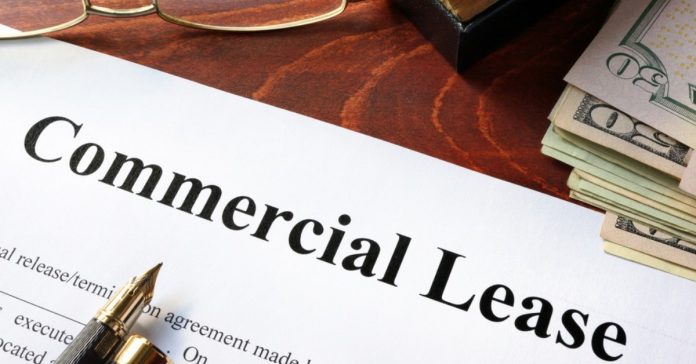This article is written by Knut Helge Kirkhus, pursuing a Diploma in Entrepreneurship Administration and Business Laws from LawSikho.com. Here he discusses “Key Factors to be Considered While Negotiating a Commercial Lease”.

Introduction
A commercial lease is a contract between a landlord and a business for the rental of property. Most businesses will choose to rent property instead of buying it.
This study will highlight some of the key factors to be considered while negotiating a commercial lease, erstwhile when considering the term and understanding the clear term, other crucial factors must be part of final negotiations such as the rent and other expenses, mode of payment, security deposit amounts and rates of escalation. The lease should contain a grace period before any penalty amount is enforced and which also will be subjected to such negotiations.
Different Types of Commercial Leases
The different types of commercial leases that exist are as follows:
- A Gross lease (fully serviced lease), is a lease where the landlord pays for all the usual costs of owning the property, therefore the tenant pays directly only for the rent. This type of commercial lease is common for offices, some industrial and retail lease.
- A Percentage lease type contains a base rent and an agreed percentage of monthly sales above a pre-determined amount. This is common in malls.
- A single net lease is a type of lease where the tenant pays for the property taxes and usually favours the landlord.
- A double net lease, is where the tenant pays rent plus pays for the property tax and usually favours the landlord.
- The triple net lease is a lease where the tenant pays for the rent, plus taxes, insurance and maintenance. This usually favours the landlord.
Key Factors to consider leasing a commercial property
A lease agreement may cover various aspects and it’s the responsibility of the potential tenant to read such agreement thoroughly and request any clarifications or modifications thereto.
One of the crucial aspects is for both the landlord and the tenant to explicitly define the location and the precise area of the rental premises for such a rental agreement. The tenant must also ensure that the landlord for this premises are legally authorized to enforce such a lease and can provide supportive proof such as registration certificate and property tax receipts before entering into any lease agreement.
Extra care must be taken to ensure that no ambiguity exists related to taxation. Once this is sufficed by the parties, the lease terms and commencement date must then be established. The lease term definition should be the period during which the tenant is obligated to pay rent for the agreed premises. In addition, key factor such as the years of commencement and termination of the lease must be clearly defined in the lease agreement,
In India commercial leases are generally structured over a period of nine years with a rent escalation every three years, this to represent to index the rent to inflation. However, shorter leases are rare in commercial offices as the tenant usually invest significantly in the interior as offices usually are handed over in a bare shell form with limited or no wiring and lighting. If such condition applies, then it’s of paramount importance to calculate to recover if the landlord of the premises wants to terminate the lease prematurely.
Key factors such as maintenance, repair and insurance expenses must be clearly defined in the lease agreement as usually, the landlord will be, albeit all common area maintenance charges must be pre-determined and agreed by both the landlord and the tenant.
For retail tenants, it is especially important to be able to obtain exclusive right to sell good and or provide services. For this, the tenant may require for a competitor clause in the lease agreement which requires the landlord to consent if the premises would be rented out to a competitor.
The lease agreement must contain a clear definition of the tenant responsibilities and rights and agreed notice period to sublease and the termination penalty the landlord can enforce if the tenant prematurely subleases the premises.
Negotiation of the rent
The rent quoted by the landlord is usually open for negotiations so a tenant may strike a good bargain, however, it also depends on the landlord being a considerable real estate company or individual.
A corporate landlord may not give as much discount on the rent as an individual but likely to strike some standards of commitment and services over the tenure of the lease.
Which part of the rent should be negotiated
The definition of a rent in a commercial lease usually contains components such as base rent and recurring expenses such as cleaning and upkeep of the premises.
The base rate is usually the first to be negotiated as it commonly is ten times of the maintenance cost, so if after negotiations it results in a reduction by small factions, it will also result in a far more saving in the maintenance expenses.
Tenant improvement
Tenant improvement (TI) are pre-agreed construction allowances, usually given by the landlord to the tenant as per square foot basis.
This allows the tenant to make improvements to their newly leases premises and can include as simple as new paint to complex complete remodelling.
Sub-lease clause in the agreement
As aforementioned earlier its crucial to agree on a sub-lease clause, as a landlord will usually not allow subletting in care no prior agreement is established. The tenant must be explicit about its future requirements from the premises and the possibilities of subletting part of the premises at any point during the tenure of the main lease. Should there however be no foreseeable requirements of subletting, then such should be considered included in a sub-lease clause as long as the rent component is not increased by the landlord for insertion?
Hidden costs/taxes
The lease agreement must be notorious clear as to who will pay the taxes like property tax, water tax etc. as these taxes may be paid only by the landlord or the tenant; or they may be split between the two parties in a certain ratio.
In India, many entities are either exempt from paying property tax or have lower tax rates. These includes:
- Dharamshala (a building devoted to religious or charitable purposes, especially a rest house for travellers).
- Orphanages
- Al Houses
- Municipal houses
- Cremation grounds
- Central and State Government Education institutions
- Government Hospitals
- Horticulture/ Agriculture
It is worth mentioning that these exemptions are not uniform and will vary from state to state and even from municipalities to municipalities. It is therefore recommended to prudently check such exemptions and rebates from local authorities prior to signing any lease agreement with the landlord.
Expenses related to security
An important key factor is also the expenses related to security.
The provision of security has to be reasonably sound for the premises being taken on rent and some security feature and security guard, if required, may exist at the time of negotiations, and some may be required after it has been taken on rent.
It is, therefore, crucial to clarify in the lease agreement what features are required and who will pay for such expenses.
Option to renew
Seek the opportunity to include in the lease agreement the option to renew the rent. This at a fixed predetermined price to avoid any unnecessary price increase should the price of office space escalates dramatically.
Right of first refusal or first offer for additional space
A right of the first offer constrains the landlord to offer any space that becomes available in his building to you prior to marketing it to any third parties.
A right of first refusal on-premises in the building allows you to match any deal he may receive from any third parties.
Although most landlords are reluctant to agree and include on such clause unless the tenant is currently renting a major and significant lot of the building.
Conclusion
The most curial and important factor in my mind is to read and thoroughly read and fully understand the content of the commercial lease, as this may allow you to realize what benefits you may have, as well as preparing you for the responsibilities as a tenant or landlord.
If a prospective landlord makes it difficult to deal with during lease negotiations and makes unreasonable requests, then one may consider leasing elsewhere or appoint a good real estate broker and lawyer at your disposal, and do not sign anything without their consent.
References:
- https://www.thebalancecareers.com/types-of-commercial-leases-3515438
- https://www.99acres.com/articles/key-factors-to-focus-when-leasing-a-commercial-property.html
- https://housing.com/news/tips-negotiate-commercial-leases/
- https://aquilacommercial.com/learning-center/your-guide-to-the-elements-of-a-commercial-lease-terms-definitions/
- https://www.allbusiness.com/negotiating-best-office-lease-for-your-startup-2339-1.html/2
Students of Lawsikho courses regularly produce writing assignments and work on practical exercises as a part of their coursework and develop themselves in real-life practical skill.
https://t.me/joinchat/J_0YrBa4IBSHdpuTfQO_sA
Follow us on Instagram and subscribe to our YouTube channel for more amazing legal content.
 Serato DJ Crack 2025Serato DJ PRO Crack
Serato DJ Crack 2025Serato DJ PRO Crack











 Allow notifications
Allow notifications


